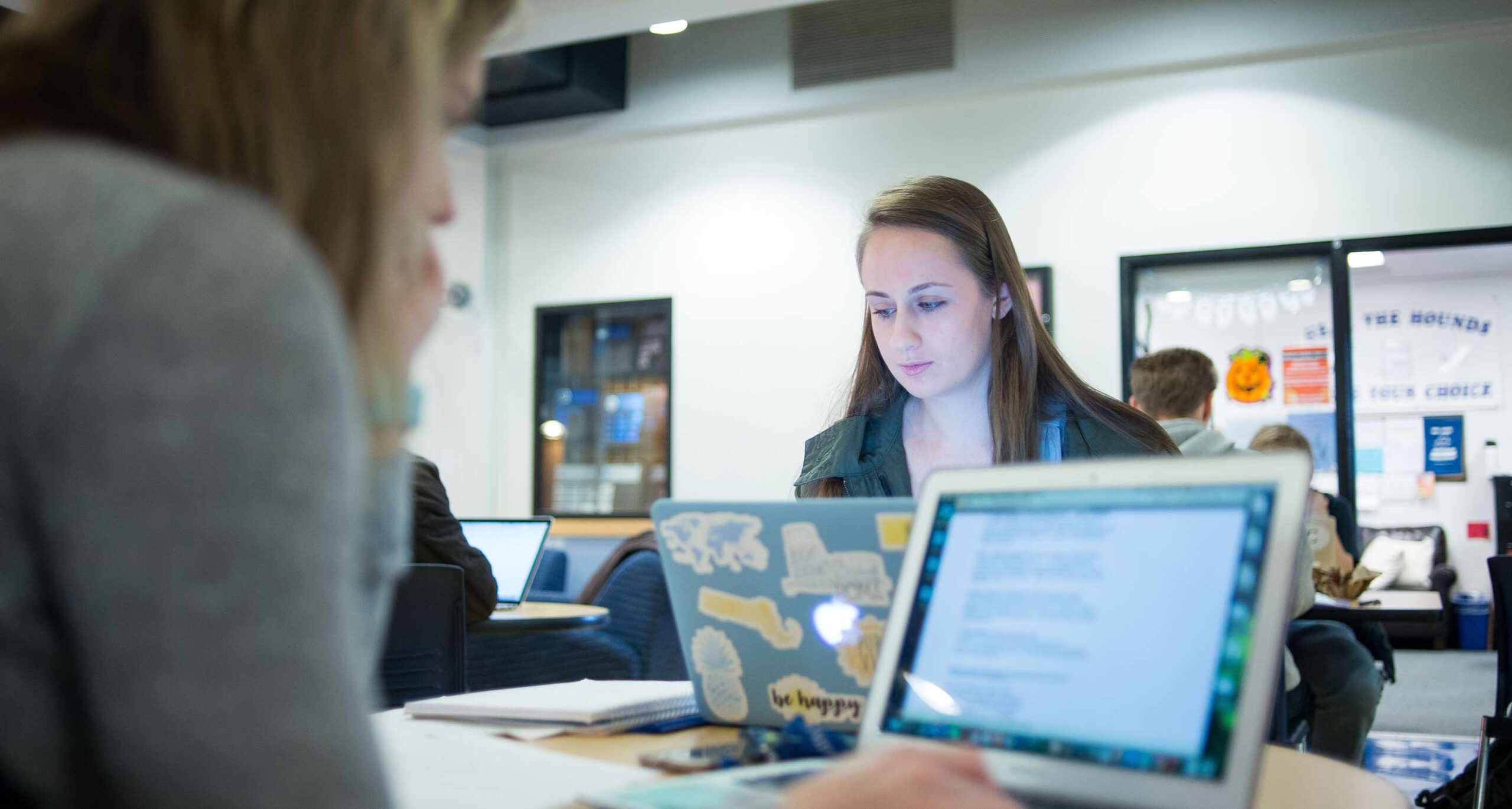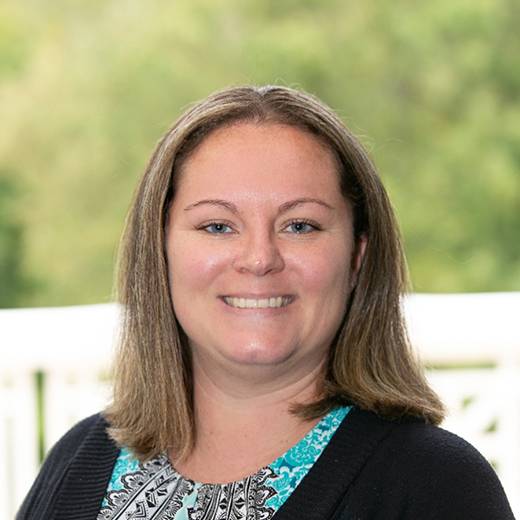Major, Minor
Degrees Offered
B.A.
School
What is Psychology?
Psychology is a science concerned with the mind and behavior. In our program, students learn about topics such as learning and memory, psychological disorders, and child development, among others, and the different scientific approaches used to study each. Students in our program develop as critical thinkers, strong writers, and skilled researchers who can apply their abilities to meaningfully gather, analyze, and summarize data in a variety of settings. This program prepares students for various career paths within psychology such as working in community agencies and clinics or in other professions such as business, education, and public service. In addition, our students are well-prepared for further study at the graduate level.
Why Study Psychology at Assumption?
Pursuing a bachelor’s degree in psychology at Assumption University promotes personal growth and development as students are challenged to critically evaluate complex issues in today’s world. In addition to courses that all psychology students take to build a strong foundation in the field, our curriculum allows students to focus their study in the areas of child and adolescent development, mental health and clinical counseling, human neuroscience, or applied behavior analysis. Our programs can be combined easily with a second major or minor, and prepare students for a range of career and graduate school opportunities. Students can complete internships for course credit toward their program of study, and the department offers internship orientation sessions and placement support. The department houses state-of-the-art research laboratories, where students can collaborate on research projects with our expert faculty through independent studies and honors theses, and through paid summer research fellowships offered through DCLAS and the Center for Neuroscience at Assumption. There are many ways to get involved in the department, for example by joining our active Psychology Club or becoming a member of Assumption’s award-winning chapter of Psi Chi: The International Honors Society in Psychology.
What Can I Do with a Psychology Degree?
Many students choose to pursue graduate degrees in a variety of areas including counseling, sociology, rehabilitative services, and law. Assumption offers a nationally renowned graduate program in clinical counseling psychology, which is affiliated with the prestigious Aaron T. Beck Institute for Cognitive Studies, located on-campus in Worcester, MA. Assumption also offers a graduate program in applied behavior analysis that meets the Behavior Analyst Certification Board’s (BACB) requirements for eligibility to take the Board Certified Behavior Analyst Examination®.
Leamarie Gordon, Ph.D.
Program Details
-
Learning Goals
By pursuing one of the majors, students will:
- develop a strong psychological knowledge base
- sharpen their critical thinking and communication skills
- understand psychological applications and research methods
- develop a socio-cultural awareness
- plan effectively for their career, academic, and personal futures
-
Psychology majors take courses from the main representative fields in psychology, complete a sequence of research courses, and have the opportunity to develop depth in an area of their interest. This curriculum allows timely preparation for graduate school and strengthens students’ professional skills.
Foundation Course (1)
PSY 101
General Psychology (normally taken in the first year)
Research Sequence (2)
PSY 224
Statistics (normally taken Fall of sophomore year)
PSY 225
Research Methods (normally taken Spring of sophomore year)
Students must choose one course from each of the four cornerstones (4 total)
Social/Developmental Cornerstone (choose 1)
PSY 210
Social Psychology
PSY 290
Psychology of Development: Infancy and Childhood
Biological Cornerstone (choose 1)
PSY 250
Perception
PSY 251
Introduction to Brain and Behavior
Mental Health Cornerstone (choose 1)
PSY 216
Psychological Disorders
PSY 240
Psychology of Personality
Cognition and Learning Cornerstone (choose 1)
PSY 252
Cognitive Psychology
PSY 253
Psychology of Learning
Capstone Seminar (1)
Students must complete one capstone seminar course. Students are encouraged to choose a 400-level seminar course that builds off a cornerstone course they have previously taken.
PSY 408
Family Psychology
PSY 409
Common Problems in Childhood
PSY 410
Stereotypes and Prejudices
PSY 416
Abnormal Child and Adolescent Psychology
PSY 425
Clinical Psychology
PSY 403
Cognitive Neuroscience
ABA 450
Advanced Topics in Applied Behavior Analysis
Elective courses (4)
Students must take four additional PSY or ABA courses, and at least two courses must be at the 300 level or higher. In addition to choosing additional cornerstone or capstone offerings, sample elective courses include:
PSY 212
Sports Psychology
PSY 217
Psychology of Women
PSY 220
Interpersonal Communication
PSY 281
Psychology of Adolescence and Maturity
PSY 285
Women’s Studies I: Images
PSY 218
Cultural Psychology
PSY 286
Organization & Industrial Psychology
PSY 386
Psychology of Aging
PSY 390
Research Seminar
PSY 391
Experimental Techniques in Human Neuroscience
PSY 392
Raising Successful and Happy Children
PSY 396
Forensic Psychology
PSY 301
Internship in Psychology
PSY 399
Independent Study
ABA 340
Introduction to Behavior Analysis and Therapy
ABA 350
Survey of Behavioral Interventions
Course Descriptions
-
This concentration focuses the psychology major on courses relevant to the interactions of brain function, cognition, and behavior. This concentration is ideal for students interested in applying to graduate programs in cognition, neuroscience or certain clinical programs focused on the biological basis of psychopathology. The major can be combined with further study in natural sciences, and with careful planning, it is possible to pursue a second major or minor in one of these disciplines. Students who choose this concentration are also encouraged to do internships or independent studies in laboratories studying psychophysiology, neurobiology or the biological basis of behavior.
Foundation Courses in Psychology and Neuroscience (7)
PSY 101
General Psychology
PSY 250
Perception
PSY 251
Introduction to Brain and Behavior
PSY 252
Cognitive Psychology
BIO 160
Concepts in Biology (4 credit lab course)
BIO 280
Sensory Systems (4 credit lab course)
PHI 302
Person, Mind, and Brain
Research Sequence (3)
PSY 224
Statistics
PSY 225
Research Methods
PSY 391
Experimental Techniques in Human Neuroscience (4 credit lab)
Social/Developmental Cornerstone (choose 1)
PSY 210
Social Psychology
PSY 290
Psychology of Development: Infancy and Childhood
Mental Health Cornerstone (choose 1)
PSY 216
Psychological Disorders
PSY 240
Psychology of Personality
Neuroscience Capstone (choose 1)
PSY 402
Social and Affective Neuroscience
PSY 403
Cognitive Neuroscience
Course Descriptions
-
This Major in Psychology with a Concentration in Child and Adolescent Development trains students in the major areas of human development, including physical, cognitive, perceptual, social, personality, and emotional development, and exposes students to theory, research, and application of the developmental psychology field. In addition to a broad foundation in psychology across the lifespan, the coursework allows students to focus on the earlier developmental periods (e.g. childhood and adolescence). Students also have opportunities to take courses that focus on typical (e.g., common problems in childhood) and atypical development (e.g., abnormal child and adolescent development), as well as optimal functioning (e.g., raising happy and successful children, family psychology). This major is ideal for providing students with the background to pursue graduate degrees in a variety of areas such as Developmental Psychology, Human Development, Family Studies, Applied Behavior Analysis, School Psychology, Special Education, Counseling Psychology, Social Work, School Counseling, and Child Life programs. Many psychology-based graduate programs require a strong foundation in psychological theory and research and this major prepares students for such programs. The coursework also provides the research, conceptual, and applied background for students who may seek employment in organizations (e.g., schools or agencies) that work with children and adolescents who may or may not have developmental psychopathology or impairments.
Foundation Courses in Psychology and Child and Adolescent Development (7)
PSY 101
General Psychology
PSY 216
Psychological Disorders
PSY 281
Psychology of Adolescence and Maturity
PSY 250 or PSY 251
Perception (PSY 250) or Introduction to Brain and Behavior (PSY 251)
PSY 253
Psychology of Learning
PSY 290
Psychology of Development: Infancy and Childhood
PSY 301
Internship in Psychology (internship approved by department chair)
Research Sequence (2)
PSY 224
Statistics
PSY 225
Research Methods
Child and Adolescent Development Capstone Seminar (Choose 1)
PSY 408
Family Psychology
PSY 409
Common Problems in Childhood
PSY 416
Abnormal Child and Adolescent Psychology
Child and Adolescent Development Elective Courses (Choose 1)
PSY 383
Introduction to Autism Spectrum Disorder
PSY 386
Psychology of Aging
PSY 392
Raising Happy and Successful Children
PSY 399
Independent Study (topic approved by concentration coordinator)
PSY 408
Family Psychology (Unless taken as Capstone)
PSY 409
Common Problems in Childhood (Unless taken as Capstone)
PSY 416
Abnormal Child and Adolescent Psychology (Unless taken as Capstone)
Two additional Psychology electives (2)
May be any PSY or ABA course not fulfilling another major requirement. At least ONE of these courses must be at the 300 level or higher.
Recommended Courses in Other Disciplines
ABA 340
Applied Behavior Analysis: Skill Acquisition
ENG 263
Children’s Literature
EDU 260
Teaching Students with Special Needs
EDU 265
Effective Classroom Management
HUS 235
Normal Speech and Language Development
HUS 241
Prevention and Intervention: Models and Approaches with Youth
HUS 321
Social Skill Development for Youth
HUS 421
Grief and Loss
-
The Major in Psychology with a Concentration in Mental Health and Pre-Clinical Counseling is designed for Psychology majors with a particular interest in clinical or counseling psychology or clinical social work. The concentration lays a solid foundation in coursework, research, and field experiences to help students decide if they wish to apply to a graduate program and obtain licensure to practice in a clinical field (e.g., Clinical Psychology, Counseling Psychology, Social Work, etc.). Students will pursue coursework, applied work, and research emphasizing clinical psychology as a science, and the best practices for diagnosis and treatment within the scientific paradigm. Students will be prepared for entry-level positions related to the field of psychology and also prepared for entry into graduate study in areas such as social work, counseling, school psychology and clinical psychology. Courses will include Abnormal Psychology, Internship in Psychology, and an advanced seminar in Clinical Psychology.
Foundation Courses in Psychology and Mental Health Counseling (1)
PSY 101
General Psychology
PSY 210 or PSY 290
Social Psychology (PSY 210) or Psychology of Development: Infancy and Childhood (PSY 290)
PSY 216
Psychological Disorders
PSY 251
Introduction to Brain and Behavior
PSY 253
Psychology of Learning
PSY 301
Internship in Psychology (internship approved by department chair)
Research Sequence (2)
PSY 224
Statistics
PSY 225
Research Methods
Social, Emotional, and Cultural Influences (Choose 1)
PSY 217
Psychology of Women
PSY 218
Cultural Psychology
PSY 220
Interpersonal Communication
PSY 240
Psychology of Personality
PSY 330
Positive Psychology
PSY 335
Motivation and Emotion
PSY 386
Psychology of Aging
PSY 408
Family Psychology
PSY 410
Stereotypes & Prejudice
Mental Health and Pre-Clinical Counseling Capstone Seminar (1)
PSY 425
Clinical Psychology
Advanced Mental Health and Pre-Clinical Counseling Elective (Choose 1)
PSY 383
Introduction to Autism Spectrum Disorder
PSY 396
Forensic Psychology
PSY 399
Independent Study (topic approved by department chair)
PSY 409
Common Problems in Childhood
PSY 416
Abnormal Child and Adolescent Psychology
ABA 340
Introduction to Behavior Analysis and Therapy
ABA 350
Survey of Behavioral Interventions
Two additional Psychology electives (2)
May be any PSY or ABA course not fulfilling another major requirement. At least ONE of these courses must be at the 300 level or higher
-
A Major in Neuroscience utilizes an interdisciplinary approach to empower students to: 1) develop and refine skills of inquiry with a focus on the brain and mind, 2) gain a strong understanding of classic and contemporary findings in neuroscience, 3) comprehend and appreciate the dynamic, multidisciplinary nature of this field, 4) ask thoughtful questions and strategically select approaches to answer questions, 5) develop informed hypotheses and design/execute experiments to test hypotheses, 6) critically analyze data and determine if data supports hypotheses, and 7) explore philosophical questions about the nature of human life, consciousness, and free will.
Neuroscience explores the complex interactions between the distinct aspects of the brain, mind, and behavior. The Major in Neuroscience engages students through a holistic, interdisciplinary approach rooted in rigorous science and augmented by philosophical perspectives that address the brain, mind, and human nature.
In addition, students are encouraged to engage in activities offered by the Center for Neuroscience (CfN), which include research internships, an interdisciplinary lecture series, and community service. Students who major in neuroscience will be prepared to pursue careers in industry, health professions, and graduate studies within the field of neuroscience.
The Major in Neuroscience with a Psychology Path features a curriculum that explores concepts related to human neuroscience, namely:
- Neuroanatomy and function of the nervous system
- Neural mechanisms of human perception, thought, and behavior
- How context, environment, experience, and brain function interact to influence human behavior
- Developmental, neurological, and psychiatric disorders
- Familiarity and experience with experimental designs and tools used to study human neuroscience
- Philosophical conversations about the relationship between brain and mind, free will, and human consciousness.
REQUIRED COURSES (16)
Foundation Courses (9)
PSY 101
General Psychology
PSY 250
Perception
PSY 251
Introduction to Brain and Behavior
PSY 252
Cognitive Psychology
PSY 335
Motivation and Emotion
BIO 160
Concepts in Biology (+lab; 4-credit)
BIO 280
Sensory Systems (+lab; 4-credit)
BIO 415
Principles of Neuroscience (+lab; 4-credit)
PHI 302
Person, Mind, & Brain
Choose one of the following BIO courses (1)
BIO 375
Milestones in Neuroscience (3-credit; no lab)
BIO 310
Animal Behavior (+ lab; 4-credit)
Research Sequence (3)
PSY 224
Statistics
PSY 225
Research Methods
PSY 391
Experimental Techniques in Human Neuroscience (+lab; 4-credit)
Neuroscience Capstone (choose 1)
PSY 402
Social and Affective Neuroscience
PSY 403
Cognitive Neuroscience
Electives (2)
Any Psychology or ABA course (200-level or above)
Any Biology course (200-level or above)
MAT 117
Calculus I
CSC 117
Introduction to Programming
Recommended Courses (NOT REQUIRED)
MAT 117
Calculus I (if not taken as elective)
CSC 117
Introduction to Programming (if not taken as elective)
PHI 152
The Human Difference -OR- PHI 153 Book of Nature
THE 151
Faith and Reason
-
To complete a Minor in Psychology students must complete six Psychology courses—PSY 101, one course from each of the four cornerstones, and one elective.
Required Course (1)
PSY 101
General Psychology
Cornerstone Courses (4)
Students must choose one 200-level course from each of the four cornerstones:
Social/Developmental Cornerstone (1)
PSY 210
Social Psychology
PSY 290
Psychology of Development: Infancy and Childhood
Biological Cornerstone (1)
PSY 250
Perception
PSY 251
Introduction to Brain and Behavior
Mental Health Cornerstone (1)
PSY 216
Psychological Disorders
PSY 240
Psychology of Personality
Cognition and Learning Cornerstone (1)
PSY 252
Cognitive Psychology
PSY 253
Psychology of Learning
Elective Course (1)
Students must take one additional course from any area: elective, cornerstone, or seminar
Course Descriptions
-
Applied behavior analysis (ABA) is the application of principles of learning and behavior used to solve socially significant problems (to influence changes in behavior that are meaningful to individuals and those around them). ABA is relevant to human behavior in a variety of contexts, including developmental and intellectual disabilities, autism spectrum disorder, general and special education, clinical psychology, medicine, counseling, job effectiveness, business, animal training, sports training, environmental protection, exercise and health, criminology, and other areas. The Minor in ABA provides an introduction to behavior-analytic theory and methods for assessment and intervention; it complements coursework in the Education, Human Services and Rehabilitation Studies, and Psychology majors. Given the prevalence of developmental and intellectual disabilities in society, the minor may also be of interest to students in other majors, such as Business Studies, Biology, and Criminology. Students who complete undergraduate courses in ABA will learn how to effectively apply behavior-analytic procedures to solve behavioral problems that occur in their professional and personal lives.
Required Courses (5 courses)
PSY 253
Psychology of Learning
ABA 340
Introduction to Behavior Analysis and Therapy
ABA 350
Survey of Behavioral Interventions
ABA 450
Advanced Topics in Applied Behavior Analysis
PSY 301
Internship in Psychology*
Internship placement must be approved by the ABA Program Director
*HRS 400 or HRS 490 may be substituted if the student’s experience is focused on ABA and with approval by the ABA Program Director.
Elective (1 course)
EDU 101
Schools in American Society
EDU 260
Teaching Students with Special Needs
EDU 265
Effective Classroom Management
HUS 119
Introduction to Human Services and Rehabilitation Studies
HUS 121
Human Development and Disability across the Lifespan
HUS 225
Introduction to Human Communication and Its Disorders
HUS 321
Social Skills Development Strategies for Youth
PSY 101
General Psychology
PSY 216
Psychological Disorders
PSY 290
Psychology of Development: Infancy and Childhood
PSY 220
Interpersonal Communication
PSY 225
Research Methods in Psychology
PSY 383
Introduction to Autism Spectrum Disorder
PSY 409
Common Problems in Childhood
PSY 416
Abnormal Child and Adolescent Psychology
Please contact the ABA Program Director, Dr. Karen Lionello-DeNolf, k.lionellodenolf@assumption.edu with any questions.
-
Amy Cirillo, Ph.D. Assistant Professor of Psychology
Dr. Cirillo is a child clinical psychologist with clinical and research interests in the development of prosocial referencing, empathy, and moral development in infancy and early childhood. Her current research explores the contribution of specific distortions in parent-child interaction to the disorganization of the infant’s attachment strategies.
Leonard Doerfler, Ph,.D. Professor of Psychology
Dr. Doerfler’s clinical and research interests include cognitive-behavioral and interpersonal models of mood disorders, predictors of psychiatric hospitalization, psychotherapy outcome assessment, psychosocial adjustment to life-threatening illness, and assessment of depression and posttraumatic stress disorder in heart attack survivors. He is a clinical psychologist.
Leamarie Gordon, Ph.D., Associate Professor, Chair of Psychology Department
Dr. Gordon seeks to understand how humans learn and remember visual and verbal information. In her current research, she investigates how retrieval practice, or memory tests, can not only change how people store information in memory but also how they approach learning new material. She explores these issues in two applied contexts: the classroom and eyewitness memory situations. Dr. Gordon is a cognitive psychologist.
Maria Kalpidou, Associate Professor of Psychology
Dr. Kalpidou’s interests primarily focus on the socio-emotional development of infants and young children. She is currently investigating the effects of postpartum depression on infant development and the role of sensory processing on infant attachment and eating competence. Her research in infancy also addresses age-related changes in imitation in the first 12 months of life as well as cultural differences in imitative mother-infant exchanges. Another ongoing project is the effects of childhood adverse experiences on later adjustment. Dr. Kalpidou is a developmental psychologist.
Regina Kuersten-Hogan, Associate Professor of Psychology, Director, Clinical Counseling Psychology Graduate Program
Dr. Kuersten-Hogan is a child clinical psychologist who is interested in family interaction patterns and children’s cognitive and emotional development. Her clinical interests include child and family therapy and she has worked in both inpatient and outpatient settings. Her research interests focus on the role of family emotion communication and co-parenting dynamics in children’s emotional understanding and Theory of Mind, on children’s understanding of pretense and magic, and on fathers’ involvement in children’s adjustment.
Karen Lionello-DeNolf, Ph.D., Associate Professor of Psychology, Director of Applied Behavior Analysis Minor and Graduate Program
Dr. Lionello-DeNolf is a Board Certified Behavior Analyst and an experimental psychologist. Her research interests are in the areas of experimental and applied behavior analysis, autism spectrum disorders, developmental disabilities, and relational learning. The primary goal of her recent research has been to increase functional communication skills that are necessary for individuals with limited language ability to effectively use augmentative and alternative communication devices. Her current projects include exploring how learning history influences people’s willingness to cooperate with others in a shared task, teaching methods that result in better development of symbolic relations, and best practices in training service delivery staff to implement teaching programs for students with autism.
Maria Parmley, Ph.D., Associate Professor of Psychology
Dr. Parmley’s recent research interests have included how adults and children interpret the social cues of others, children’s interpretation of a peer’s emotion, and how gender stereotypes and the ambiguity of an emotion might influence the perception of an emotional message. Currently, Dr. Parmley is investigating the perception of emotions in relationships varying in intimacy. Dr. Parmley is a social psychologist.
Adam Volungis, Ph.D., Associate Professor of Psychology
Dr. Volungis’ research interests include prevention of school violence, suicide prevention in adolescents, college student mental health and smartphone dependency, enhancing cognitive-behavioral therapy with technology, and youth internalizing/externalizing disorders. He is a counseling psychologist and his clinical experience includes working in psychiatric, residential, and outpatient settings serving youth, families, and adults. Most recently, he has provided psychological assessment and cognitive-behavioral therapy to youth and their families at Youth Opportunities Upheld, Inc. and Children’s Friend.
Fang Zhang, Ph.D., Associate Professor of Psychology
Dr. Zhang’s broad research interests include the cognitive, motivational, and emotional foundations of personality. Specifically, her research focuses on four areas: 1) personality and self-development across the lifespan, 2) adult attachment and interpersonal dynamics, 3) sending, decoding, and co-regulation of emotions in interpersonal relationships, and 4) cross-cultural comparison of person perception and implicit theories of personality. Dr. Zhang is a social and personality psychologist.
Hannah Smith, Ph.D., Visiting Assistant Professor of Psychology
Dr. Smith explores STEM learning across ages and contexts. She researches how to make STEM learning more accessible through teacher training and developing classroom materials such as learning games. She is currently exploring the impact of professional development programs on early childhood teachers’ confidence in and knowledge about STEAM teaching and learning. In another project, she explores the impact of gender differences and technology biases on student perceptions of computational thinking. Dr. Smith is a learning scientist.
Nicole Pantano, Ph.D.
Dr. Nicole Pantano is a doctoral level Board Certified Behavior Analyst. Her clinical work includes applications of behavior analysis in early intervention, and she received clinical and research training at the Munroe-Meyer Institute. Dr. Pantano’s research interests include verbal behavior acquisition in children with and without intellectual disabilities and the exploration of best teaching practices in post-secondary education.
Meltem Karaca, Ph.D.
Dr. Karaca is interested in understanding the cognitive, metacognitive, and neurophysiological factors that impact successful learning across the lifespan. Her research program examines the role of self-perceptions of aging on older adults’ memory, as well as ways to improve memory retention for older adults with and without cognitive impairment. Additionally, she is interested in examining methods to improve students’ knowledge and performance, both in and out of the classroom. Dr. Karaca is a cognitive neuroscientist.
-
The Psychology Department has state-of-the-art research facilities to conduct research in mental health, biological psychology, developmental psychology, social, cognitive, and affective science, and learning and memory. Because Assumption is an undergraduate institution, you will have the distinct benefit of working side-by-side with a faculty member rather than a graduate student or post-doc when you engage in research at Assumption. In addition, students have the unique advantage of being able to present research as a co-author at regional, national, and international professional conferences in psychology or become a co-honor on a professional publication. Students are encouraged to become involved in the campus community and beyond, by joining our active Psychology Club, becoming a member of the Psychology or Neuroscience Honor Societies, and engaging with the community in community service learning courses. Research opportunities for students include independent studies, honors thesis, summer fellowships, and more.
-
Laboratory for the Evaluation of Psychopathology and Psychosocial Interventions
The Laboratory for the Evaluation of Psychopathology and Psychosocial Interventions does research to focus on practice-based research by collaborating with mental health professionals in the community. The data for this research is usually generated through the course of routine clinical services or activities and addresses questions that are important to practicing clinicians.
Affiliated Faculty: Dr. Leonard Doerfler, Dr. Adam Volungis
The Child and Family Studies Labs (CAFS)
The Child and Family Studies Labs (CAFS) contains a real-life living room with a one-way mirror and state-of-the-art observation cameras, coding software, a computerized doll simulating the responses of a real baby, and equipment to record body movements. This allows for unobtrusive data collection when interviewing families, observing children performing motor tasks, or engaging in free play or social interactions. Our developmental research also involves observations outside of the lab, such as in schools, preschools, the Neonatal Intensive Care Unit (NICU), and during home visits with families. Affiliated Faculty: Dr. Amy Cirillo, Dr. Maria Kalpidou, Dr. Regina Kuersten-Hogan
The Emotion and Social Cognition Lab
The Emotion and Social Cognition Lab investigates emotions and facial expressions by exploring how cultural, social, and physiological factors, such as gender, stereotypes, and hormonal changes, influence the recognition of facial expressions and how various emotions can impact information processing. We use morphing software to manipulate facial expressions and behavioral experiment software to present images and record individuals’ responses.
Affiliated Faculty: Dr. Maria Parmley, Dr. Fang Zhang
Learning and Memory Lab
Research conducted in the Learning and Memory Lab employs a variety of experimental methods to better understand how we acquire and use information in different contexts, and how we can apply knowledge of these processes in the real world. For example, one area of research explores how the distribution of attentional resources during learning impacts memory accuracy and memory errors. This has important implications for best practices in the classroom and when considering eyewitness memory scenarios.
Affiliated Faculty: Dr. Leamarie Gordon, Dr. Meltem Karaca, Dr. Hannah Smith
Applied Behavior Analysis Lab
The Applied Behavior Analysis (ABA) Lab conducts research on how behavior is maintained, strengthened, or weakened by environmental variables. Research in this lab employs various experimental methods, including group and single-subject research.
Some current ongoing projects include exploring methods to train behavior technicians to implement interventions for children with autism and improving student outcomes in post-secondary education.
Affiliated Faculty: Karen Lionello-DeNolf, PhD, BCBA-D; Nicole Pantano, PhD, BCBA-D
Learning Goals
By pursuing one of the majors, students will:
- develop a strong psychological knowledge base
- sharpen their critical thinking and communication skills
- understand psychological applications and research methods
- develop a socio-cultural awareness
- plan effectively for their career, academic, and personal futures
Psychology majors take courses from the main representative fields in psychology, complete a sequence of research courses, and have the opportunity to develop depth in an area of their interest. This curriculum allows timely preparation for graduate school and strengthens students’ professional skills.
Foundation Course (1)
| PSY 101 | General Psychology (normally taken in the first year) |
Research Sequence (2)
| PSY 224 | Statistics (normally taken Fall of sophomore year) |
| PSY 225 | Research Methods (normally taken Spring of sophomore year) |
Students must choose one course from each of the four cornerstones (4 total)
Social/Developmental Cornerstone (choose 1)
| PSY 210 | Social Psychology |
| PSY 290 | Psychology of Development: Infancy and Childhood |
Biological Cornerstone (choose 1)
| PSY 250 | Perception |
| PSY 251 | Introduction to Brain and Behavior |
Mental Health Cornerstone (choose 1)
| PSY 216 | Psychological Disorders |
| PSY 240 | Psychology of Personality |
Cognition and Learning Cornerstone (choose 1)
| PSY 252 | Cognitive Psychology |
| PSY 253 | Psychology of Learning |
Capstone Seminar (1)
Students must complete one capstone seminar course. Students are encouraged to choose a 400-level seminar course that builds off a cornerstone course they have previously taken.
| PSY 408 | Family Psychology |
| PSY 409 | Common Problems in Childhood |
| PSY 410 | Stereotypes and Prejudices |
| PSY 416 | Abnormal Child and Adolescent Psychology |
| PSY 425 | Clinical Psychology |
| PSY 403 | Cognitive Neuroscience |
| ABA 450 | Advanced Topics in Applied Behavior Analysis |
Elective courses (4)
Students must take four additional PSY or ABA courses, and at least two courses must be at the 300 level or higher. In addition to choosing additional cornerstone or capstone offerings, sample elective courses include:
| PSY 212 | Sports Psychology |
| PSY 217 | Psychology of Women |
| PSY 220 | Interpersonal Communication |
| PSY 281 | Psychology of Adolescence and Maturity |
| PSY 285 | Women’s Studies I: Images |
| PSY 218 | Cultural Psychology |
| PSY 286 | Organization & Industrial Psychology |
| PSY 386 | Psychology of Aging |
| PSY 390 | Research Seminar |
| PSY 391 | Experimental Techniques in Human Neuroscience |
| PSY 392 | Raising Successful and Happy Children |
| PSY 396 | Forensic Psychology |
| PSY 301 | Internship in Psychology |
| PSY 399 | Independent Study |
| ABA 340 | Introduction to Behavior Analysis and Therapy |
| ABA 350 | Survey of Behavioral Interventions |
Course Descriptions
This concentration focuses the psychology major on courses relevant to the interactions of brain function, cognition, and behavior. This concentration is ideal for students interested in applying to graduate programs in cognition, neuroscience or certain clinical programs focused on the biological basis of psychopathology. The major can be combined with further study in natural sciences, and with careful planning, it is possible to pursue a second major or minor in one of these disciplines. Students who choose this concentration are also encouraged to do internships or independent studies in laboratories studying psychophysiology, neurobiology or the biological basis of behavior.
Foundation Courses in Psychology and Neuroscience (7)
| PSY 101 | General Psychology |
| PSY 250 | Perception |
| PSY 251 | Introduction to Brain and Behavior |
| PSY 252 | Cognitive Psychology |
| BIO 160 | Concepts in Biology (4 credit lab course) |
| BIO 280 | Sensory Systems (4 credit lab course) |
| PHI 302 | Person, Mind, and Brain |
Research Sequence (3)
| PSY 224 | Statistics |
| PSY 225 | Research Methods |
| PSY 391 | Experimental Techniques in Human Neuroscience (4 credit lab) |
Social/Developmental Cornerstone (choose 1)
| PSY 210 | Social Psychology |
| PSY 290 | Psychology of Development: Infancy and Childhood |
Mental Health Cornerstone (choose 1)
| PSY 216 | Psychological Disorders |
| PSY 240 | Psychology of Personality |
Neuroscience Capstone (choose 1)
| PSY 402 | Social and Affective Neuroscience |
| PSY 403 | Cognitive Neuroscience |
Course Descriptions
This Major in Psychology with a Concentration in Child and Adolescent Development trains students in the major areas of human development, including physical, cognitive, perceptual, social, personality, and emotional development, and exposes students to theory, research, and application of the developmental psychology field. In addition to a broad foundation in psychology across the lifespan, the coursework allows students to focus on the earlier developmental periods (e.g. childhood and adolescence). Students also have opportunities to take courses that focus on typical (e.g., common problems in childhood) and atypical development (e.g., abnormal child and adolescent development), as well as optimal functioning (e.g., raising happy and successful children, family psychology). This major is ideal for providing students with the background to pursue graduate degrees in a variety of areas such as Developmental Psychology, Human Development, Family Studies, Applied Behavior Analysis, School Psychology, Special Education, Counseling Psychology, Social Work, School Counseling, and Child Life programs. Many psychology-based graduate programs require a strong foundation in psychological theory and research and this major prepares students for such programs. The coursework also provides the research, conceptual, and applied background for students who may seek employment in organizations (e.g., schools or agencies) that work with children and adolescents who may or may not have developmental psychopathology or impairments.
Foundation Courses in Psychology and Child and Adolescent Development (7)
| PSY 101 | General Psychology |
| PSY 216 | Psychological Disorders |
| PSY 281 | Psychology of Adolescence and Maturity |
| PSY 250 or PSY 251 | Perception (PSY 250) or Introduction to Brain and Behavior (PSY 251) |
| PSY 253 | Psychology of Learning |
| PSY 290 | Psychology of Development: Infancy and Childhood |
| PSY 301 | Internship in Psychology (internship approved by department chair) |
Research Sequence (2)
| PSY 224 | Statistics |
| PSY 225 | Research Methods |
Child and Adolescent Development Capstone Seminar (Choose 1)
| PSY 408 | Family Psychology |
| PSY 409 | Common Problems in Childhood |
| PSY 416 | Abnormal Child and Adolescent Psychology |
Child and Adolescent Development Elective Courses (Choose 1)
| PSY 383 | Introduction to Autism Spectrum Disorder |
| PSY 386 | Psychology of Aging |
| PSY 392 | Raising Happy and Successful Children |
| PSY 399 | Independent Study (topic approved by concentration coordinator) |
| PSY 408 | Family Psychology (Unless taken as Capstone) |
| PSY 409 | Common Problems in Childhood (Unless taken as Capstone) |
| PSY 416 | Abnormal Child and Adolescent Psychology (Unless taken as Capstone) |
Two additional Psychology electives (2)
May be any PSY or ABA course not fulfilling another major requirement. At least ONE of these courses must be at the 300 level or higher.
Recommended Courses in Other Disciplines
| ABA 340 | Applied Behavior Analysis: Skill Acquisition |
| ENG 263 | Children’s Literature |
| EDU 260 | Teaching Students with Special Needs |
| EDU 265 | Effective Classroom Management |
| HUS 235 | Normal Speech and Language Development |
| HUS 241 | Prevention and Intervention: Models and Approaches with Youth |
| HUS 321 | Social Skill Development for Youth |
| HUS 421 | Grief and Loss |
The Major in Psychology with a Concentration in Mental Health and Pre-Clinical Counseling is designed for Psychology majors with a particular interest in clinical or counseling psychology or clinical social work. The concentration lays a solid foundation in coursework, research, and field experiences to help students decide if they wish to apply to a graduate program and obtain licensure to practice in a clinical field (e.g., Clinical Psychology, Counseling Psychology, Social Work, etc.). Students will pursue coursework, applied work, and research emphasizing clinical psychology as a science, and the best practices for diagnosis and treatment within the scientific paradigm. Students will be prepared for entry-level positions related to the field of psychology and also prepared for entry into graduate study in areas such as social work, counseling, school psychology and clinical psychology. Courses will include Abnormal Psychology, Internship in Psychology, and an advanced seminar in Clinical Psychology.
Foundation Courses in Psychology and Mental Health Counseling (1)
| PSY 101 | General Psychology |
| PSY 210 or PSY 290 | Social Psychology (PSY 210) or Psychology of Development: Infancy and Childhood (PSY 290) |
| PSY 216 | Psychological Disorders |
| PSY 251 | Introduction to Brain and Behavior |
| PSY 253 | Psychology of Learning |
| PSY 301 | Internship in Psychology (internship approved by department chair) |
Research Sequence (2)
| PSY 224 | Statistics |
| PSY 225 | Research Methods |
Social, Emotional, and Cultural Influences (Choose 1)
| PSY 217 | Psychology of Women |
| PSY 218 | Cultural Psychology |
| PSY 220 | Interpersonal Communication |
| PSY 240 | Psychology of Personality |
| PSY 330 | Positive Psychology |
| PSY 335 | Motivation and Emotion |
| PSY 386 | Psychology of Aging |
| PSY 408 | Family Psychology |
| PSY 410 | Stereotypes & Prejudice |
Mental Health and Pre-Clinical Counseling Capstone Seminar (1)
| PSY 425 | Clinical Psychology |
Advanced Mental Health and Pre-Clinical Counseling Elective (Choose 1)
| PSY 383 | Introduction to Autism Spectrum Disorder |
| PSY 396 | Forensic Psychology |
| PSY 399 | Independent Study (topic approved by department chair) |
| PSY 409 | Common Problems in Childhood |
| PSY 416 | Abnormal Child and Adolescent Psychology |
| ABA 340 | Introduction to Behavior Analysis and Therapy |
| ABA 350 | Survey of Behavioral Interventions |
Two additional Psychology electives (2)
May be any PSY or ABA course not fulfilling another major requirement. At least ONE of these courses must be at the 300 level or higher
A Major in Neuroscience utilizes an interdisciplinary approach to empower students to: 1) develop and refine skills of inquiry with a focus on the brain and mind, 2) gain a strong understanding of classic and contemporary findings in neuroscience, 3) comprehend and appreciate the dynamic, multidisciplinary nature of this field, 4) ask thoughtful questions and strategically select approaches to answer questions, 5) develop informed hypotheses and design/execute experiments to test hypotheses, 6) critically analyze data and determine if data supports hypotheses, and 7) explore philosophical questions about the nature of human life, consciousness, and free will.
Neuroscience explores the complex interactions between the distinct aspects of the brain, mind, and behavior. The Major in Neuroscience engages students through a holistic, interdisciplinary approach rooted in rigorous science and augmented by philosophical perspectives that address the brain, mind, and human nature.
In addition, students are encouraged to engage in activities offered by the Center for Neuroscience (CfN), which include research internships, an interdisciplinary lecture series, and community service. Students who major in neuroscience will be prepared to pursue careers in industry, health professions, and graduate studies within the field of neuroscience.
The Major in Neuroscience with a Psychology Path features a curriculum that explores concepts related to human neuroscience, namely:
- Neuroanatomy and function of the nervous system
- Neural mechanisms of human perception, thought, and behavior
- How context, environment, experience, and brain function interact to influence human behavior
- Developmental, neurological, and psychiatric disorders
- Familiarity and experience with experimental designs and tools used to study human neuroscience
- Philosophical conversations about the relationship between brain and mind, free will, and human consciousness.
REQUIRED COURSES (16)
| Foundation Courses (9) | |
| PSY 101 | General Psychology |
| PSY 250 | Perception |
| PSY 251 | Introduction to Brain and Behavior |
| PSY 252 | Cognitive Psychology |
| PSY 335 | Motivation and Emotion |
| BIO 160 | Concepts in Biology (+lab; 4-credit) |
| BIO 280 | Sensory Systems (+lab; 4-credit) |
| BIO 415 | Principles of Neuroscience (+lab; 4-credit) |
| PHI 302 | Person, Mind, & Brain |
| Choose one of the following BIO courses (1) | |
| BIO 375 | Milestones in Neuroscience (3-credit; no lab) |
| BIO 310 | Animal Behavior (+ lab; 4-credit) |
| Research Sequence (3) | |
| PSY 224 | Statistics |
| PSY 225 | Research Methods |
| PSY 391 | Experimental Techniques in Human Neuroscience (+lab; 4-credit) |
| Neuroscience Capstone (choose 1) | |
| PSY 402 | Social and Affective Neuroscience |
| PSY 403 | Cognitive Neuroscience |
| Electives (2) | |
| Any Psychology or ABA course (200-level or above) | |
| Any Biology course (200-level or above) | |
| MAT 117 | Calculus I |
| CSC 117 | Introduction to Programming |
| Recommended Courses (NOT REQUIRED) | |
| MAT 117 | Calculus I (if not taken as elective) |
| CSC 117 | Introduction to Programming (if not taken as elective) |
| PHI 152 | The Human Difference -OR- PHI 153 Book of Nature |
| THE 151 | Faith and Reason |
To complete a Minor in Psychology students must complete six Psychology courses—PSY 101, one course from each of the four cornerstones, and one elective.
Required Course (1)
| PSY 101 | General Psychology |
Cornerstone Courses (4)
Students must choose one 200-level course from each of the four cornerstones:
Social/Developmental Cornerstone (1)
| PSY 210 | Social Psychology |
| PSY 290 | Psychology of Development: Infancy and Childhood |
Biological Cornerstone (1)
| PSY 250 | Perception |
| PSY 251 | Introduction to Brain and Behavior |
Mental Health Cornerstone (1)
| PSY 216 | Psychological Disorders |
| PSY 240 | Psychology of Personality |
Cognition and Learning Cornerstone (1)
| PSY 252 | Cognitive Psychology |
| PSY 253 | Psychology of Learning |
Elective Course (1)
Students must take one additional course from any area: elective, cornerstone, or seminar
Course Descriptions
Applied behavior analysis (ABA) is the application of principles of learning and behavior used to solve socially significant problems (to influence changes in behavior that are meaningful to individuals and those around them). ABA is relevant to human behavior in a variety of contexts, including developmental and intellectual disabilities, autism spectrum disorder, general and special education, clinical psychology, medicine, counseling, job effectiveness, business, animal training, sports training, environmental protection, exercise and health, criminology, and other areas. The Minor in ABA provides an introduction to behavior-analytic theory and methods for assessment and intervention; it complements coursework in the Education, Human Services and Rehabilitation Studies, and Psychology majors. Given the prevalence of developmental and intellectual disabilities in society, the minor may also be of interest to students in other majors, such as Business Studies, Biology, and Criminology. Students who complete undergraduate courses in ABA will learn how to effectively apply behavior-analytic procedures to solve behavioral problems that occur in their professional and personal lives.
Required Courses (5 courses)
| PSY 253 | Psychology of Learning |
| ABA 340 | Introduction to Behavior Analysis and Therapy |
| ABA 350 | Survey of Behavioral Interventions |
| ABA 450 | Advanced Topics in Applied Behavior Analysis |
| PSY 301 | Internship in Psychology* |
Internship placement must be approved by the ABA Program Director
*HRS 400 or HRS 490 may be substituted if the student’s experience is focused on ABA and with approval by the ABA Program Director.
Elective (1 course)
| EDU 101 | Schools in American Society |
| EDU 260 | Teaching Students with Special Needs |
| EDU 265 | Effective Classroom Management |
| HUS 119 | Introduction to Human Services and Rehabilitation Studies |
| HUS 121 | Human Development and Disability across the Lifespan |
| HUS 225 | Introduction to Human Communication and Its Disorders |
| HUS 321 | Social Skills Development Strategies for Youth |
| PSY 101 | General Psychology |
| PSY 216 | Psychological Disorders |
| PSY 290 | Psychology of Development: Infancy and Childhood |
| PSY 220 | Interpersonal Communication |
| PSY 225 | Research Methods in Psychology |
| PSY 383 | Introduction to Autism Spectrum Disorder |
| PSY 409 | Common Problems in Childhood |
| PSY 416 | Abnormal Child and Adolescent Psychology |
Please contact the ABA Program Director, Dr. Karen Lionello-DeNolf, k.lionellodenolf@assumption.edu with any questions.
Amy Cirillo, Ph.D. Assistant Professor of Psychology
Dr. Cirillo is a child clinical psychologist with clinical and research interests in the development of prosocial referencing, empathy, and moral development in infancy and early childhood. Her current research explores the contribution of specific distortions in parent-child interaction to the disorganization of the infant’s attachment strategies.
Leonard Doerfler, Ph,.D. Professor of Psychology
Dr. Doerfler’s clinical and research interests include cognitive-behavioral and interpersonal models of mood disorders, predictors of psychiatric hospitalization, psychotherapy outcome assessment, psychosocial adjustment to life-threatening illness, and assessment of depression and posttraumatic stress disorder in heart attack survivors. He is a clinical psychologist.
Leamarie Gordon, Ph.D., Associate Professor, Chair of Psychology Department
Dr. Gordon seeks to understand how humans learn and remember visual and verbal information. In her current research, she investigates how retrieval practice, or memory tests, can not only change how people store information in memory but also how they approach learning new material. She explores these issues in two applied contexts: the classroom and eyewitness memory situations. Dr. Gordon is a cognitive psychologist.
Maria Kalpidou, Associate Professor of Psychology
Dr. Kalpidou’s interests primarily focus on the socio-emotional development of infants and young children. She is currently investigating the effects of postpartum depression on infant development and the role of sensory processing on infant attachment and eating competence. Her research in infancy also addresses age-related changes in imitation in the first 12 months of life as well as cultural differences in imitative mother-infant exchanges. Another ongoing project is the effects of childhood adverse experiences on later adjustment. Dr. Kalpidou is a developmental psychologist.
Regina Kuersten-Hogan, Associate Professor of Psychology, Director, Clinical Counseling Psychology Graduate Program
Dr. Kuersten-Hogan is a child clinical psychologist who is interested in family interaction patterns and children’s cognitive and emotional development. Her clinical interests include child and family therapy and she has worked in both inpatient and outpatient settings. Her research interests focus on the role of family emotion communication and co-parenting dynamics in children’s emotional understanding and Theory of Mind, on children’s understanding of pretense and magic, and on fathers’ involvement in children’s adjustment.
Karen Lionello-DeNolf, Ph.D., Associate Professor of Psychology, Director of Applied Behavior Analysis Minor and Graduate Program
Dr. Lionello-DeNolf is a Board Certified Behavior Analyst and an experimental psychologist. Her research interests are in the areas of experimental and applied behavior analysis, autism spectrum disorders, developmental disabilities, and relational learning. The primary goal of her recent research has been to increase functional communication skills that are necessary for individuals with limited language ability to effectively use augmentative and alternative communication devices. Her current projects include exploring how learning history influences people’s willingness to cooperate with others in a shared task, teaching methods that result in better development of symbolic relations, and best practices in training service delivery staff to implement teaching programs for students with autism.
Maria Parmley, Ph.D., Associate Professor of Psychology
Dr. Parmley’s recent research interests have included how adults and children interpret the social cues of others, children’s interpretation of a peer’s emotion, and how gender stereotypes and the ambiguity of an emotion might influence the perception of an emotional message. Currently, Dr. Parmley is investigating the perception of emotions in relationships varying in intimacy. Dr. Parmley is a social psychologist.
Adam Volungis, Ph.D., Associate Professor of Psychology
Dr. Volungis’ research interests include prevention of school violence, suicide prevention in adolescents, college student mental health and smartphone dependency, enhancing cognitive-behavioral therapy with technology, and youth internalizing/externalizing disorders. He is a counseling psychologist and his clinical experience includes working in psychiatric, residential, and outpatient settings serving youth, families, and adults. Most recently, he has provided psychological assessment and cognitive-behavioral therapy to youth and their families at Youth Opportunities Upheld, Inc. and Children’s Friend.
Fang Zhang, Ph.D., Associate Professor of Psychology
Dr. Zhang’s broad research interests include the cognitive, motivational, and emotional foundations of personality. Specifically, her research focuses on four areas: 1) personality and self-development across the lifespan, 2) adult attachment and interpersonal dynamics, 3) sending, decoding, and co-regulation of emotions in interpersonal relationships, and 4) cross-cultural comparison of person perception and implicit theories of personality. Dr. Zhang is a social and personality psychologist.
Hannah Smith, Ph.D., Visiting Assistant Professor of Psychology
Dr. Smith explores STEM learning across ages and contexts. She researches how to make STEM learning more accessible through teacher training and developing classroom materials such as learning games. She is currently exploring the impact of professional development programs on early childhood teachers’ confidence in and knowledge about STEAM teaching and learning. In another project, she explores the impact of gender differences and technology biases on student perceptions of computational thinking. Dr. Smith is a learning scientist.
Nicole Pantano, Ph.D.
Dr. Nicole Pantano is a doctoral level Board Certified Behavior Analyst. Her clinical work includes applications of behavior analysis in early intervention, and she received clinical and research training at the Munroe-Meyer Institute. Dr. Pantano’s research interests include verbal behavior acquisition in children with and without intellectual disabilities and the exploration of best teaching practices in post-secondary education.
Meltem Karaca, Ph.D.
Dr. Karaca is interested in understanding the cognitive, metacognitive, and neurophysiological factors that impact successful learning across the lifespan. Her research program examines the role of self-perceptions of aging on older adults’ memory, as well as ways to improve memory retention for older adults with and without cognitive impairment. Additionally, she is interested in examining methods to improve students’ knowledge and performance, both in and out of the classroom. Dr. Karaca is a cognitive neuroscientist.
The Psychology Department has state-of-the-art research facilities to conduct research in mental health, biological psychology, developmental psychology, social, cognitive, and affective science, and learning and memory. Because Assumption is an undergraduate institution, you will have the distinct benefit of working side-by-side with a faculty member rather than a graduate student or post-doc when you engage in research at Assumption. In addition, students have the unique advantage of being able to present research as a co-author at regional, national, and international professional conferences in psychology or become a co-honor on a professional publication. Students are encouraged to become involved in the campus community and beyond, by joining our active Psychology Club, becoming a member of the Psychology or Neuroscience Honor Societies, and engaging with the community in community service learning courses. Research opportunities for students include independent studies, honors thesis, summer fellowships, and more.
Laboratory for the Evaluation of Psychopathology and Psychosocial Interventions
The Laboratory for the Evaluation of Psychopathology and Psychosocial Interventions does research to focus on practice-based research by collaborating with mental health professionals in the community. The data for this research is usually generated through the course of routine clinical services or activities and addresses questions that are important to practicing clinicians.
Affiliated Faculty: Dr. Leonard Doerfler, Dr. Adam Volungis
The Child and Family Studies Labs (CAFS)
The Child and Family Studies Labs (CAFS) contains a real-life living room with a one-way mirror and state-of-the-art observation cameras, coding software, a computerized doll simulating the responses of a real baby, and equipment to record body movements. This allows for unobtrusive data collection when interviewing families, observing children performing motor tasks, or engaging in free play or social interactions. Our developmental research also involves observations outside of the lab, such as in schools, preschools, the Neonatal Intensive Care Unit (NICU), and during home visits with families. Affiliated Faculty: Dr. Amy Cirillo, Dr. Maria Kalpidou, Dr. Regina Kuersten-Hogan
The Emotion and Social Cognition Lab
The Emotion and Social Cognition Lab investigates emotions and facial expressions by exploring how cultural, social, and physiological factors, such as gender, stereotypes, and hormonal changes, influence the recognition of facial expressions and how various emotions can impact information processing. We use morphing software to manipulate facial expressions and behavioral experiment software to present images and record individuals’ responses.
Affiliated Faculty: Dr. Maria Parmley, Dr. Fang Zhang
Learning and Memory Lab
Research conducted in the Learning and Memory Lab employs a variety of experimental methods to better understand how we acquire and use information in different contexts, and how we can apply knowledge of these processes in the real world. For example, one area of research explores how the distribution of attentional resources during learning impacts memory accuracy and memory errors. This has important implications for best practices in the classroom and when considering eyewitness memory scenarios.
Affiliated Faculty: Dr. Leamarie Gordon, Dr. Meltem Karaca, Dr. Hannah Smith
Applied Behavior Analysis Lab
The Applied Behavior Analysis (ABA) Lab conducts research on how behavior is maintained, strengthened, or weakened by environmental variables. Research in this lab employs various experimental methods, including group and single-subject research.
Some current ongoing projects include exploring methods to train behavior technicians to implement interventions for children with autism and improving student outcomes in post-secondary education.
Affiliated Faculty: Karen Lionello-DeNolf, PhD, BCBA-D; Nicole Pantano, PhD, BCBA-D
Faculty
All of our faculty bring experience from clinical or research positions in a variety of fields of study, and we enjoy working side-by-side with our students in our state-of-the-art research facilities.
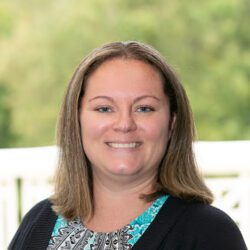
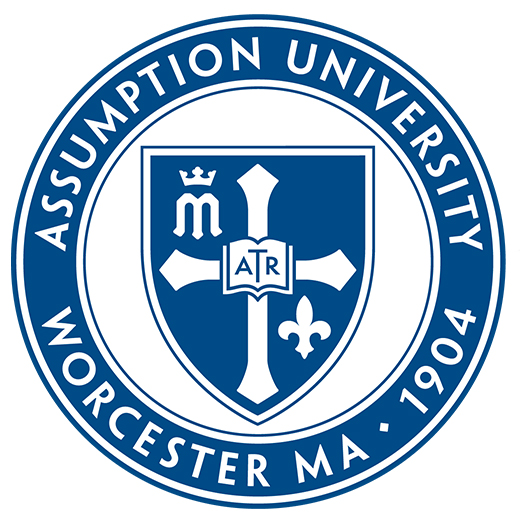
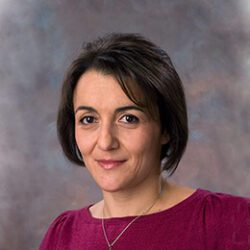


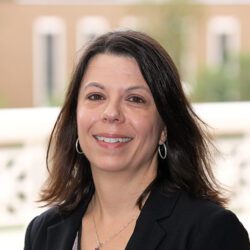
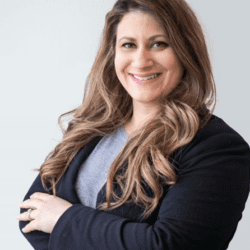
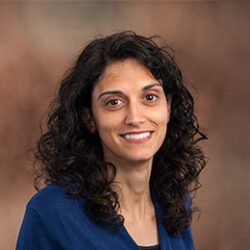
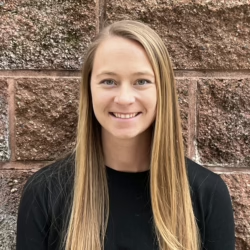

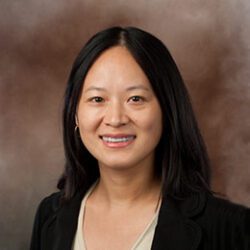
Recent Employment Opportunities
The psychology program prepares students for successful and fulfilling careers in an array of fields, including nonprofit and entrepreneurial organizations, corporations, and local, state, and federal government.
Outer Cape Health Services
Horace Mann Educational Associates
Mental Health Services
Ostrow and Company
Shire
University of Massachusetts Medical School
Community Health Link
Sovos Compliance
Baypath Elder Services
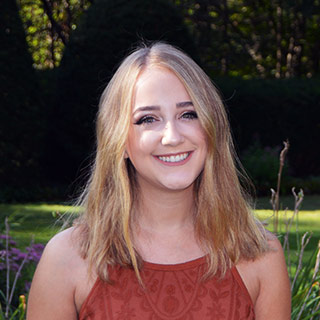
Lindsay Gomes
Psychology 2018
Pursuing a PhD in Psychology, University of North Carolina at Chapel Hill
“Not only are the professors extraordinary, but the knowledge I gained surpassed my expectations. I credit the success I had at my internship to Assumption. Because of the small classrooms and faculty-to-student ratio, students truly get to know their professors and develop relationships that lead to opportunities for mentorship, research, and collaboration.”
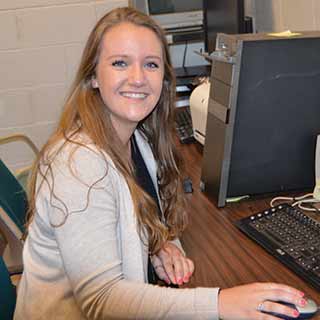
Holly Olson
Psychology 2018
“I worked in the Psychology labs on campus which was an incredible experience. I learned how to code and analyze data, and how to write up results of statistically significant findings. This research has required independence and time management skills, and I have developed a great relationship with one of my favorite professors.”
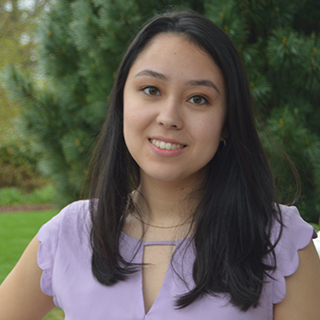
Hannah Fung
Psychology 2020
Honors Fellow, Assumption College Psychology Department
“Because of Assumption, I have grown in all areas of my life, academically and personally. Assumption’s strong Department of Psychology, full of caring and passionate professors, has provided me with a solid foundation of knowledge for my future career. Assumption is a community that’s helped me succeed, achieve my goals, and become a better person.”

Mikaela Newman
Psychology 2021
Research Fellow, Assumption University Learning and Memory Lab
“As a research fellow, I gained valuable knowledge on compiling a research study and analyzing data. My coursework at Assumption, especially psychology classes, provided a strong foundation and allowed me to be a more effective research assistant. The professors are always willing to get to know students and help them succeed to the best of their ability.”
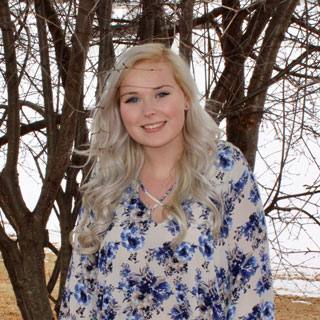
Meghan Foster
Psychology 2020
Emergency Mental Health Intern, UMass Memorial Hospital; Mental Health Counselor, Walden Behavioral Care; Pursuing Master of Science in Mental Health at UMass Boston
“Through Assumption, my clinical experience at UMass landed me my first post-grad job. Assumption’s supportive, inclusive, and positive atmosphere sets it apart from any other institution. Assumption provided me with endless opportunities for research, conference presentations, and clinical experiences which all aided in my success and has allowed me to excel.”
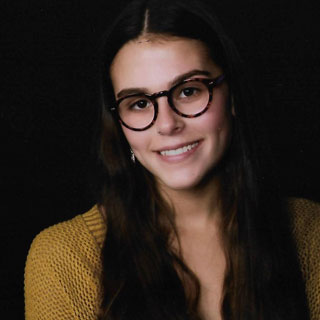
Brianna Rondeau
Psychology 2020
Clinical Student Intern, UMass Medical School; Relief Counselor, Open Sky Community Services; Pursuing Master of Social Work at Bridgewater State University
“I took what I learned in class and saw it come to life through my internship. I learned how to advocate for myself and how to work with patients - a skill I will utilize in graduate school. I believe Assumption and the people here have made me search for myself and understand what I am meant to do.”

Cassandra Miller
Psychology 2020
Clinical Counseling Intern, Open Sky Community Services
“I was constantly provided opportunities from my professors and the CDIC to further my education. This was how I was able to obtain my internship at Open Sky and eventually my license as a registered behavior technician. You never know when an opportunity will pass, and Assumption provides so many.”
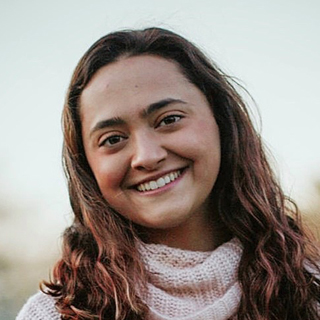
Carol D’Agostino
Psychology 2022
Honors Summer Fellowship and Honors Thesis; Intern at Balance Psychiatric Service
“Assumption has given me the knowledge and skills I need for a successful future. Not only does the curriculum support my career goals, but my professors have been there to guide me every step of the way! I have now participated in internships, earned scholarships, and have been offered a job at a psychiatric firm.”
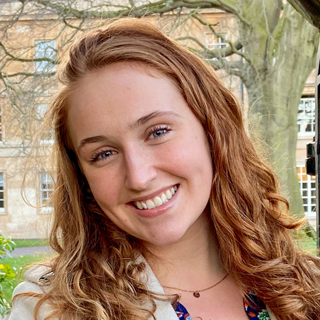
Gertrude Cox
Psychology 2021
Psychology with a Concentration in Neuroscience of Human Behavior; Research Assistant, Psychology Department at Assumption University; Intern at City of Worcester Division of Public Health; House Parent at Casa de Esperanza
“My education at Assumption encouraged me to consider multiple viewpoints and solve complex problems. When working with children in the foster care system, I need to collaborate with several individuals and institutions. Taking courses in various subjects allowed me to integrate information from different contexts to ensure the best outcomes for the people I aim to serve.”
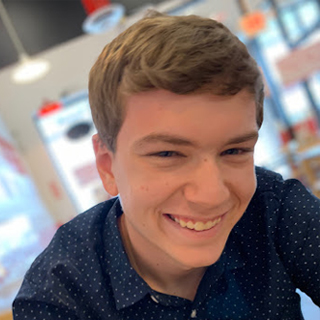
Patrick Davidson
Psychology 2022
Psychology with a Concentration in Mental Health and Pre-Clinical Counseling; Summer Research Fellow, Psychology Department at Assumption University; Volunteer, Seven Hills Foundation; Intern at Devereux Advanced Behavioral Health
“At Assumption, my professors bridged the gap between the theoretical and practical. Through my classes, research, and internship, I have become well rounded in the field of psychology. I have always wanted to help people with their day-to-day struggles. I feel confident that Assumption has given me the skills to attend graduate school and begin my career.”
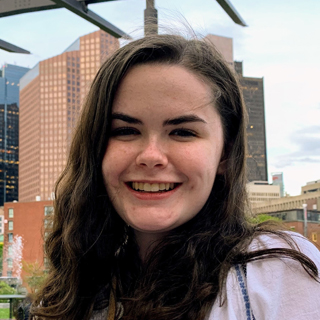
Jennifer Doherty
Psychology 2021
Research Assistant, Psychology Department at Assumption University; Intern at Open Sky; Pursuing a M.A. in Mental Health Counseling at Boston College; Graduate Assistant at City Connects
“I was not only able to find my future career path but develop skills that would help me excel in it. Through research with professors and internship experiences Assumption helped me to find my passion and follow it. The small class sizes allowed me to learn the material efficiently and engage with professors in a way that cultivated knowledge and opportunity.”
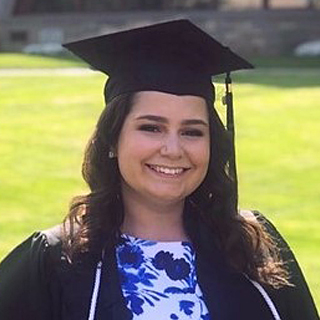
Julia Mazzola
Psychology 2020
Psychology with a Minor in Applied Behavior Analysis; Level 2 Teacher at The New England Center for Children
“After working with Assumption’s Psychology faculty, I felt prepared entering my chosen career path. In both my Psychology major and Applied Behavior Analysis minor, Assumption’s professors have set me up for success by allowing me to develop meaningful relationships, enhancing not only my undergraduate studies, but also my advanced educational and occupational pursuits.”
First-rate Academics in a Catholic University Setting
Assumption University awakens in students a sense of wonder, discovery, and purpose, forming graduates known for their intellectual seriousness, thoughtful citizenship, and devotion to the common good. Students are provided an education that shapes their souls, forms them intellectually, and prepares them for meaningful careers. Enlivened by the harmony of faith and reason, here, students’ minds and hearts are transformed.

